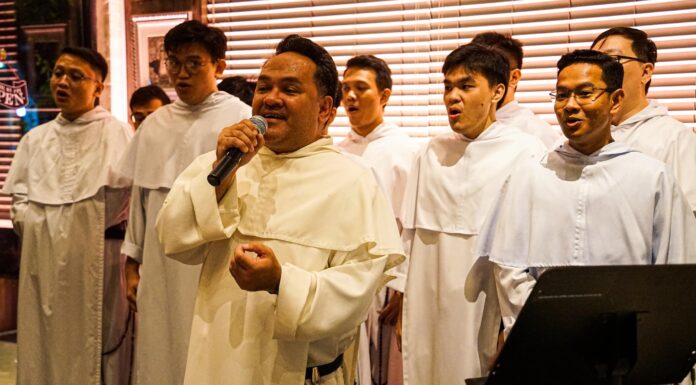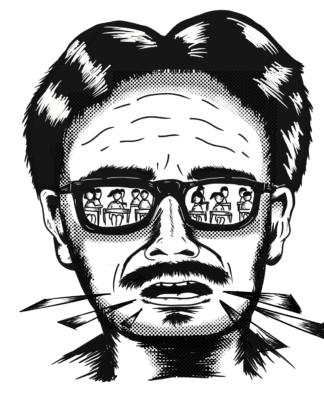FATHER RECTOR Tamerlane Lana, O.P. reminded the UST community about the true meaning of the word “Thomasian.”
“We do not pride in calling ourselves ‘Thomasians’ for nothing,” he said in a mass honoring St. Thomas Aquinas, the University’s patron saint last Jan. 27 at the UST Chapel. “That name (Thomasian) is ascribed to us because we carry the torch of Thomas—the torch of truth.”
The rector alluded Thomas’ unending search for the truth to the prevailing situation in the country, asking for the torch of truth “to illuminate during this time when the truth is compromised, covered, twisted, and manipulated by wanton interests.”
“It would be a shame to allow the torch to merely flicker,” he said. “It is not even enough that it just lights. It must illuminate.”
Lana also called for action in the quest for truth with the aid of the “power of prayer.”
“The quest for truth must continually be fueled by the power of prayer which emanates from our strong faith and child-like trust in (God),” he said. “(He) guides us and accompanies us towards our destiny—and the destiny of our country.”
Thomas was born in 1225 at Roccasecca, Italy. At an early age, his parents sent him to the Benedictine monastery at Monte Cassino, to be groomed as the next abbot of that monastery. At that time, it was the normal career path of young men of nobility.
But against the wishes of his parents, he entered the Domincan school in Cologne around 1244, meeting his mentor, St. Thomas Albertus Magnus. Thomas would accompany his mentor to the University of Paris in 1245, where he stayed for three years to finish a bachelor’s degree in Theology.
Thomas is famous for his two works, the Summa Contra Gentiles and the Summa Theologiae, which he never finished. He wrote the Summa Contra Gentiles to correct the mistakes of heretics. He finished the book around 1264.
After the Summa Contra Gentiles, Thomas worked on his next book, the Summa Theologiae which contained a compilation of all main theological teachings of his time. He never completed the book after he stopped writing in 1273. Some say Thomas witnessed an great apparition that prompted him to stop.
He was on a journey to attend the Second Council of Lyons on the orders of Pope Gregory X when he fell gravely ill. He died in 1273.
Thomas Aquinas is considered one of the world’s greatest philosophers largely for his magnificent work of synthesizing faith and reason, for proving supernatural truths through natural means.
After his death, Thomas was placed among the ranks of Sts. Paul and Augustine, receiving the title of Angelic Doctor. Pope John XXII canonized him a saint in 1323, while Pope Pius V placed the feast day of St. Thomas on the level of the four great Patriarchs of the Western church: Ambrose, Augustine, Jerome, and Gregory. In 1880, he was declared patron saint of all Catholic institutions.


















